From Shy to Sure: Social Skills Training for Social Anxiety
This article includes recommendations for several books & online courses that help you acquire social skills. Some of our links may grant you a significant discount and we will earn a commission, which supports the maintenance of our website.
Social anxiety, characterized by an overwhelming fear of judgment, rejection, disapproval, or humiliation in social settings, can profoundly impact the quality of life for those who experience it.
But what if there were a structured way to learn the social skills needed to navigate these interactions more comfortably?

Enter Social Skills Training (SST), a therapeutic approach designed to teach individuals the social skills they may lack or find difficult to implement.
The purpose of this article is to delve into what Social Skills Training is, who can benefit most from it, and how it can be particularly effective when combined with other treatment modalities like Cognitive Behavioral Therapy (CBT).
We’ll also highlight the importance of assertiveness skills, a key component often addressed in SST, and provide practical tips for those looking to improve their social skills.
Whether you’re considering SST for yourself, a loved one, or are simply curious about its applications and effectiveness, this article aims to be a comprehensive guide to understanding this therapeutic approach.
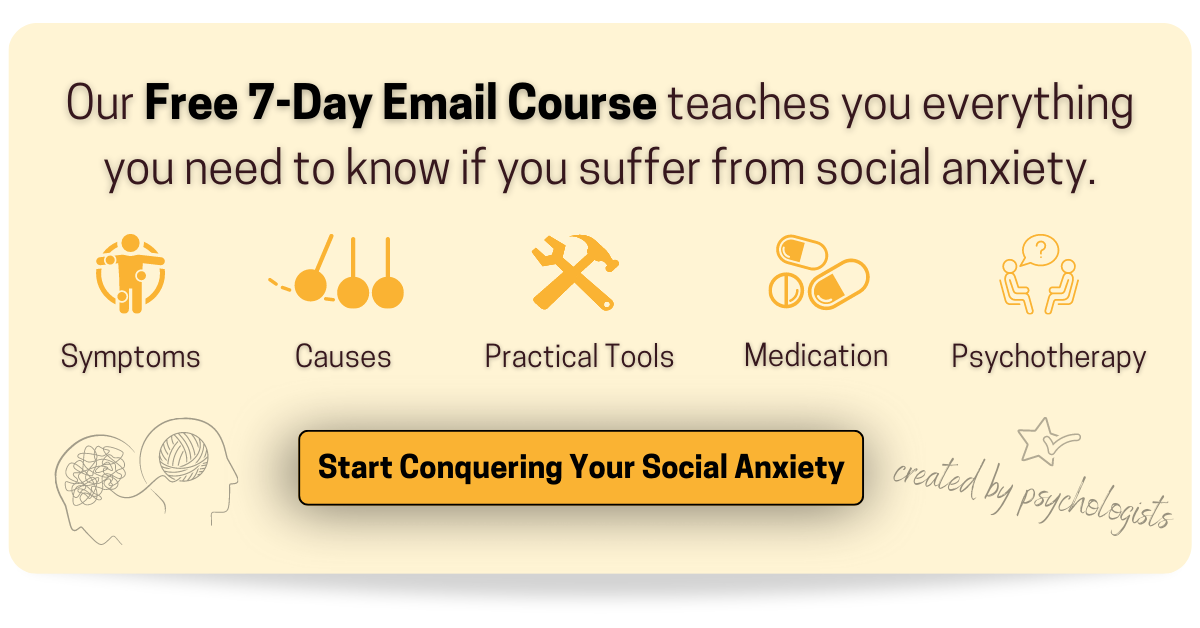
A. What is Social Skills Training?
Social Skills Training is a form of behavior therapy that focuses on improving specific social skills and behaviors.
The training is often structured, employing techniques like role-playing, modeling, and feedback to help individuals learn and practice new skills.
SST is not a one-size-fits-all approach; it can be tailored to address various social competencies, ranging from basic communication skills to more complex abilities like conflict resolution and emotional regulation.

Components of SST
SST typically involves several key components:
- Assessment: Before the training begins, an assessment is usually conducted to identify the specific social skills that need improvement.
- Skill Selection: Based on the assessment, a set of skills is chosen for training. These could include verbal communication, non-verbal cues, listening skills, and more.
- Modeling: Therapists or trainers demonstrate the desired behavior, providing a model for the individual to emulate.
- Role-Playing: Participants practice the new skills in a controlled environment, often through role-playing exercises.
- Feedback: Constructive feedback is given to help individuals refine their skills and understand what they are doing well and what needs improvement.
- Generalization: The final step involves applying the learned skills to real-world situations, with ongoing support and feedback.

Types of Skills Targeted
While SST can cover a broad range of social skills, some commonly targeted areas include:
- Communication Skills: Learning how to start and maintain conversations, make eye contact, and use appropriate body language.
- Assertiveness Skills: Learning to express oneself clearly and stand up for one’s rights in a respectful manner.
- Emotional Regulation: Learning to manage and express emotions in a socially acceptable way.
- Conflict Resolution: Learning to resolve disagreements and conflicts in a constructive manner.
By focusing on these specific skills, SST aims to equip individuals with the tools they need to navigate social situations more effectively and confidently.

B. Who Benefits Most from SST?
Social Skills Training can be a valuable resource for many, but it’s particularly beneficial for specific groups of people.
Understanding who stands to gain the most from SST can help in making informed decisions about treatment options.
Social Anxiety with Skill Deficits
Some individuals with social anxiety may genuinely lack certain social skills, perhaps due to limited socialization opportunities during their formative years.
For these people, SST can serve as a structured environment to learn and practice these skills.
Research has shown that patients participating in SST programs broadened their repertoire of skills and showed diminished psychiatric symptoms related to social dysfunctions (Corrigan, 1991).

Social Anxiety without Skill Deficits
Interestingly, not everyone with social anxiety lacks social skills. Many people have intact social skills but find themselves too anxious to employ these skills effectively in social situations.
For this group, the primary issue is not skill deficit but rather the anxiety that inhibits the application of these skills.
Research suggests that many socially anxious people may not have social skills deficits but rather cognitive distortions that make them believe they appear nervous (Cartwright-Hatton et al., 2005).
Cognitive Distortions
It’s worth noting that cognitive distortions, such as the belief that one appears more anxious or awkward than they actually do, can exacerbate social anxiety.
These distortions can be addressed through other forms of therapy like CBT, which focuses on challenging and changing unhelpful thoughts and behaviors.

The Role of SST
As becomes clear, SST is most effective for those who genuinely lack social skills and need a structured environment to learn and practice them.
For those who already possess social skills but are hindered by anxiety or cognitive distortions, a more comprehensive approach involving CBT or exposure therapy may be more appropriate.
If that’s your case, we invite you to click here to read our introductory guide to CBT for social anxiety.
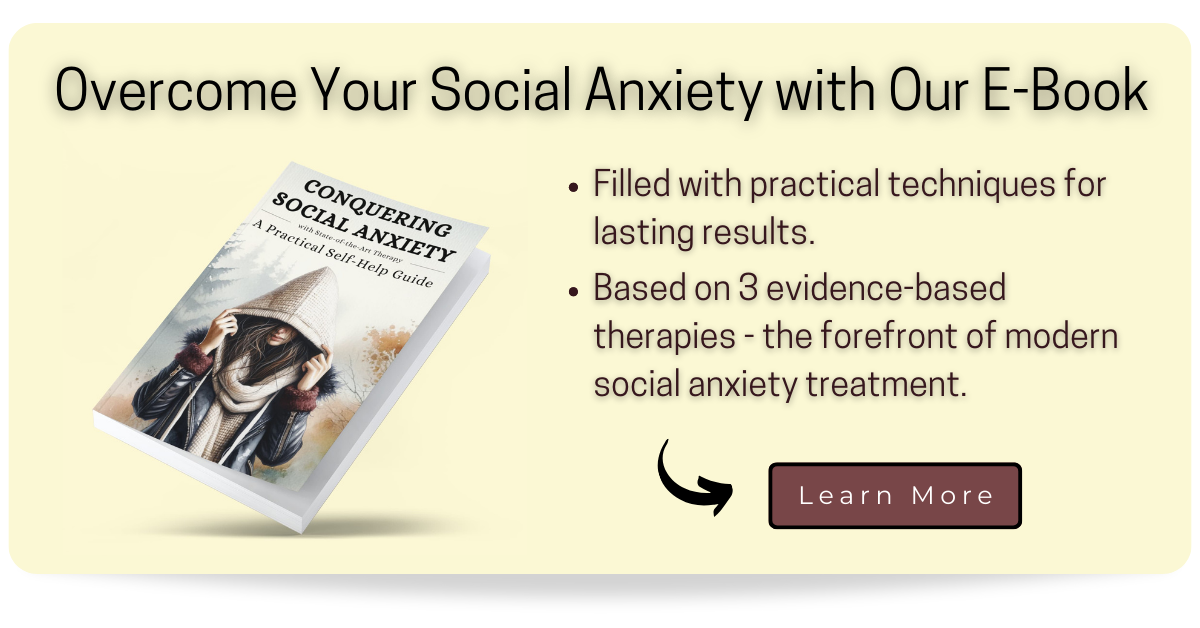
C. The Importance of Assertiveness Skills
Assertiveness is a critical social skill that often forms a part of SST. It involves the ability to express one’s thoughts, feelings, and needs in an open, honest, and respectful manner.
While it may seem straightforward, assertiveness is a nuanced skill that many people, especially those with social anxiety, find challenging to master.
Why Assertiveness Matters
Being assertive allows individuals to stand up for themselves and their rights without being aggressive or violating the rights of others.
It’s a balanced way to navigate social interactions, ensuring that one’s needs are met while also respecting those of others.
For people with social anxiety, mastering assertiveness can be particularly empowering, providing them with the tools to face social situations more confidently.

Assertiveness and Social Anxiety
Research has shown that training in assertiveness skills can significantly reduce social anxiety (Manesh et al., 2015).
This is likely because assertiveness training equips individuals with the skills to express themselves more effectively, thereby reducing the fear and apprehension associated with social interactions.
Components of Assertive Behavior
Assertiveness training often covers several key areas:
- Clear Communication: Learning to express thoughts and feelings clearly and directly.
- Setting Boundaries: Understanding how to set and maintain personal boundaries in various social settings.
- Conflict Resolution: Acquiring the skills to resolve conflicts amicably and constructively.
- Saying No: Learning the art of declining requests or invitations without feeling guilty or anxious.
By focusing on these components, SST aims to equip individuals with the assertiveness skills they need to navigate social situations more effectively, thereby reducing the symptoms of social anxiety.

The Role of SST in Assertiveness Training
In SST programs, assertiveness training often involves role-playing exercises, feedback sessions, and real-world practice.
These activities provide a safe and structured environment for individuals to learn and practice assertiveness, making it an integral part of many SST programs.
D. SST and Cognitive Behavioral Therapy
CBT is a widely recognized treatment for social anxiety, focusing on identifying and changing distorted thought patterns and behaviors.
While traditional CBT is effective in treating social anxiety, it usually doesn’t include a Social Skills Training component. However, the two can be combined for a more comprehensive approach to treatment.
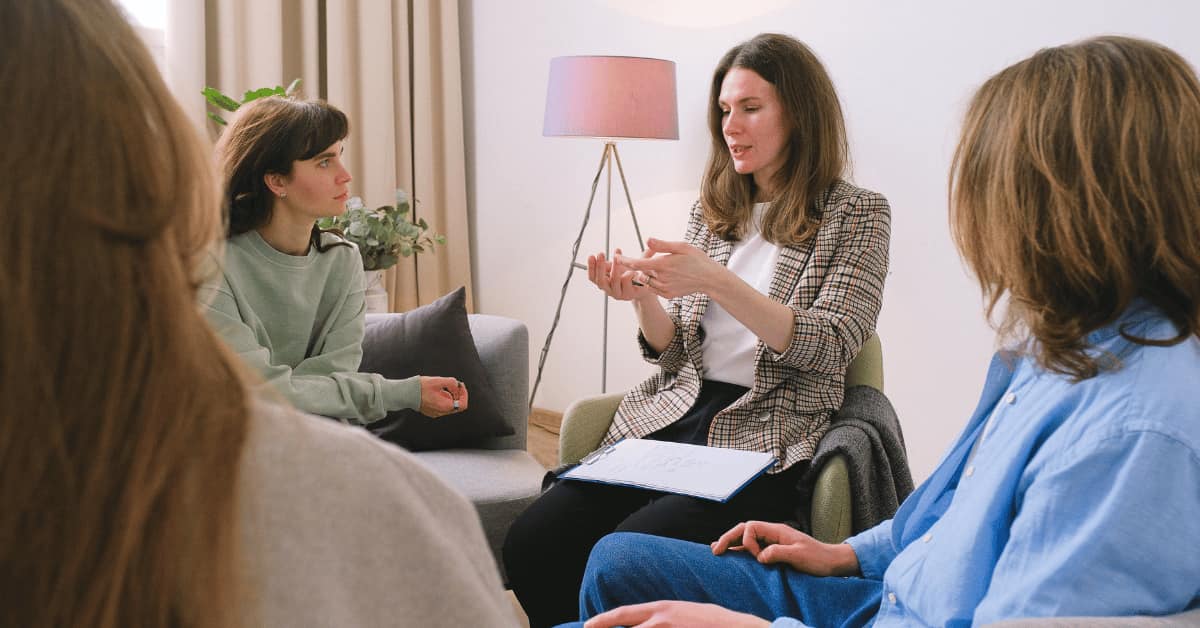
Traditional CBT vs. CBT with SST
Traditional CBT primarily focuses on cognitive restructuring, exposure exercises, and behavioral experiments. It aims to challenge and change the irrational beliefs and cognitive distortions that fuel social anxiety.
On the other hand, CBT programs that include an SST component go a step further by also addressing social skills deficits, if they exist.
Enhanced Treatment Outcomes
Studies have shown that adding SST to group Cognitive Behavioral Therapy can enhance treatment outcomes compared to using CBT group therapy alone (Herbert et al., 2005).
Another study found that adding social skills training to cognitive-behavioral interventions can enhance the impact of treatment for children and adolescents with Social Anxiety Disorder (Scaini et al., 2016).

When to Consider CBT with SST
If you or someone you know has social anxiety along with noticeable social skills deficits, a CBT program that includes SST may be more beneficial.
This combined approach can address both the cognitive aspects of social anxiety and the behavioral aspects of social skills, providing a more holistic treatment.
Finding the Right Program
If you’re interested in a CBT program that includes SST, it’s essential to consult with healthcare providers who can tailor the treatment to your specific needs. Questions to ask might include:
- Does the program include an SST component?
- What types of social skills are covered in the training?
- How is progress measured and assessed?
By asking these questions, you can find a program that not only addresses your social anxiety but also helps you build the social skills you may lack.

E. Effectiveness of SST for Social Anxiety
The question of effectiveness is crucial when considering any form of therapy, and Social Skills Training is no exception.
A growing body of research supports the efficacy of SST, particularly for individuals with social anxiety who also have social skills deficits.
Broadening Skill Repertoire
Studies have shown that patients participating in SST programs not only learn new social skills but also experience a decrease in psychiatric symptoms related to social dysfunction (Corrigan, 1991).
This broadening of the skillset can be particularly empowering, enabling individuals to navigate social situations with greater ease and confidence.

Enhanced Treatment Outcomes
Adding SST to group Cognitive Behavioral Therapy has been shown to improve treatment outcomes compared to group CBT alone (Herbert et al., 2005).
Similarly, an intervention for social anxiety disorder that emphasizes both exposure and social skills has been found to be efficacious (Masia Warner et al., 2007).
Long-Term Benefits and Lower Dropout Rates
A study focusing on adolescents found that both treatment groups effectively reduced social anxiety, but the group that included SST had better long-term outcomes and lower dropout rates (Olivares-Olivares et al., 2019).
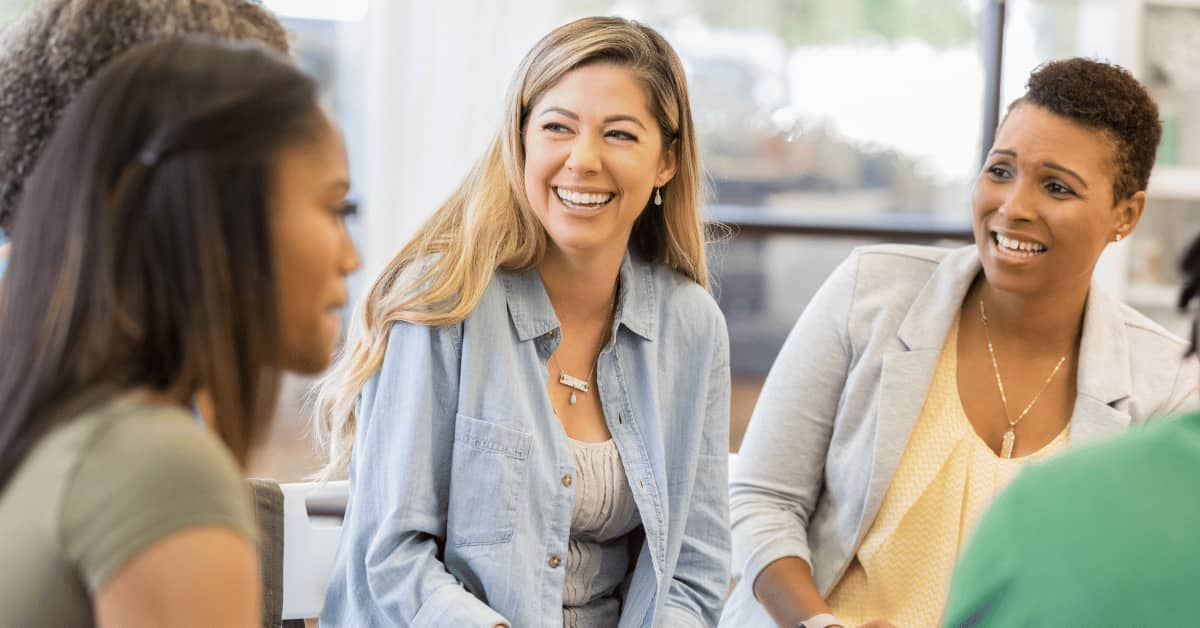
Assertiveness and Social Anxiety
Training in assertiveness skills, a component often included in SST, has been shown to reduce social anxiety (Manesh et al., 2015).
This highlights the importance of assertiveness training within the broader context of SST.
Additional Benefits in Social Effectiveness
Research has also found that Social Effectiveness Therapy, which combines SST with exposure therapy, was effective in reducing social anxiety disorder symptoms and showed additional benefits in improving social skills and general clinical status (Beidel et al., 2014).
Taken together, the evidence strongly suggests that SST can be an effective treatment for social anxiety, especially for those who also have social skills deficits.
It can be used alone or in conjunction with other therapies like CBT to provide a more comprehensive treatment approach.
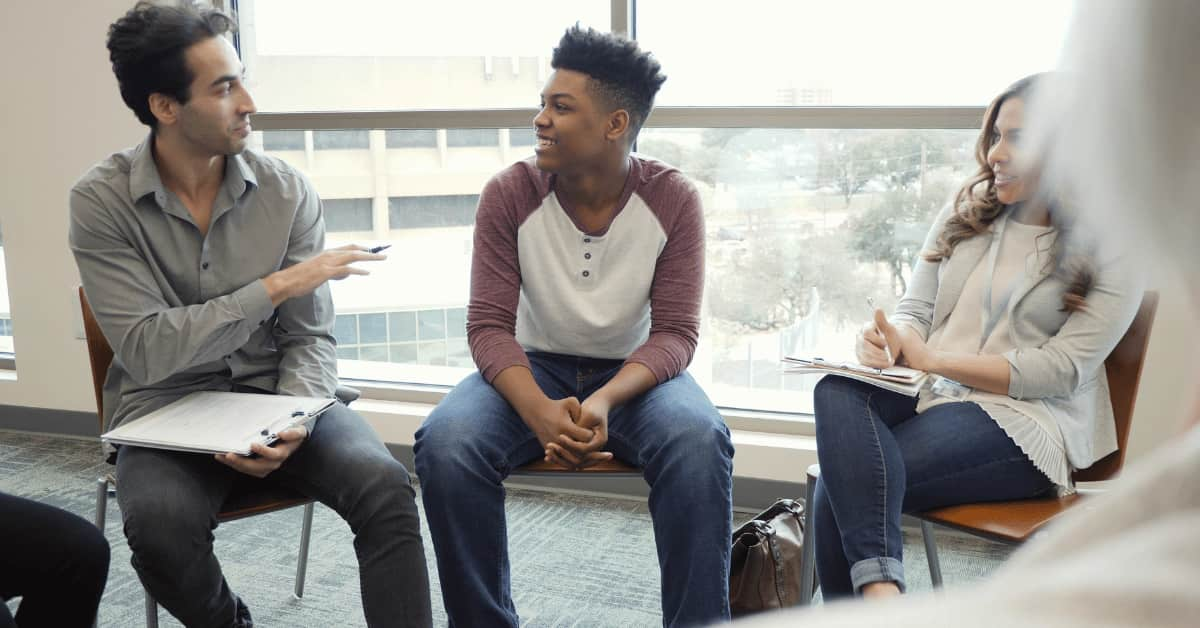
F. How to Find an SST Program
Finding the right SST program can be a crucial step in your journey toward improved social interactions and reduced social anxiety.
Here are some tips to guide you in locating and choosing an appropriate SST program or a CBT group that includes an SST component.
Consult Your Healthcare Provider
The first step in finding an SST program is often consulting with a healthcare provider for a proper diagnosis and treatment recommendations.
They can provide referrals to qualified therapists or programs that specialize in SST.

Research Online
The internet is a valuable resource for finding SST programs. Websites of professional organizations, online directories, and forums can offer insights into available options.
However, it’s essential to verify the credentials and reviews of any program you consider.
Questions to Ask
Before committing to a program, consider asking the following questions:
- Does the program specialize in treating social anxiety?
- What is the structure of the SST component?
- How is progress measured and assessed?
- Are there any testimonials or success stories you can review?

Group vs. Individual Training
SST can be offered in both group and individual settings. Group settings can provide the added benefit of practicing social skills in a more realistic environment, while individual training offers personalized attention.
Consider your comfort level and needs when choosing between the two.
Insurance and Costs
It’s also important to consider the financial aspect. Check if the program is covered by your insurance and inquire about the costs involved, including any additional materials or assessments.
Trial Sessions
Some programs offer trial sessions or initial assessments. These can be valuable for gauging the program’s suitability for your specific needs.

G. Practical Tips for Improved Social Skills
While formal Social Skills Training programs offer structured and evidence-based approaches to improving social skills, there are also practical steps you can take on your own to enhance your social interactions. Here are some easy-to-implement tips:
Start Small
If social situations feel overwhelming, start with smaller, less intimidating interactions. For example, you could begin by making small talk with a cashier or greeting a neighbor.

Practice Active Listening
Good social interaction is not just about talking; it’s also about listening. Practice active listening by maintaining eye contact, nodding, and responding appropriately to what the other person is saying.
Use Open Body Language
Your body language speaks volumes. Maintain open body language by keeping your arms uncrossed, making eye contact, and facing the person you’re talking to.
Prepare Conversation Starters
Having a few conversation starters in mind can help alleviate the initial awkwardness of a social interaction. These could be as simple as asking about someone’s day or commenting on the weather.

Set Realistic Goals
Set achievable social interaction goals for yourself. Whether it’s initiating a conversation with a colleague or attending a social event, setting and meeting small goals can boost your confidence.
Learn to Manage Anxiety
Deep breathing exercises, mindfulness, and grounding techniques can help manage the anxiety that often accompanies social interactions.
You can read our article on deep breathing for social anxiety by clicking here. Our article on mindfulness-based exercises can be found by clicking here.

Seek Feedback
If you’re comfortable doing so, consider seeking feedback from trusted friends or family members about your social interactions. They can provide valuable insights into areas for improvement.
Practice, Practice, Practice
The more you practice, the more comfortable you’ll become. Take advantage of social opportunities, even if they make you anxious. The experience will be invaluable.

H. Recommended Resources
Improving your social skills and managing social anxiety is a journey that often benefits from multiple sources of support and information.
Here are some additional resources that can complement Social Skills Training and other therapies:
Books
“Improve Your Social Skills” is a comprehensive guide authored by professional social skills coach Daniel Wendler. With step-by-step explanations, it covers a wide range of topics including conversation flow, body language, making friends, combating shyness, and successful dating. You can order it here.
“The Social Skills Guidebook” by Chris MacLeod is specifically designed for those with social anxiety, providing practical tips and exercises. You can order it here.
“How to Win Friends and Influence People“ by Dale Carnegie is a real classic that offers timeless advice on social interactions. You can order it here.

Online Courses
“Develop Amazing Social Skills & Connect With People” – This Udemy course offers a structured approach to enhancing social competence. With a high rating of 4.5 out of 5 and over 30,000 students enrolled, this course provides evidence-based strategies to improve social confidence, communication skills, and overcome fears related to social rejection. Its concise format of 2 hours and 13 minutes makes it an efficient option for skill development. You can sign up for it here.
“Charisma, Humour & Confidence – Upgrade Your Social Skills” offers a targeted curriculum for those facing social anxiety and seeking to elevate their social skills. With an impressive rating of 4.6 out of 5 and nearly 5,000 students enrolled, this course focuses on enhancing charisma, humor, and confidence in social settings. Over the course of 2 hours, participants will learn to become better conversationalists, handle social anxiety effectively, and never run out of things to say. You can sign up for it here.
“Assertive Communication Skills Masterclass” – This course is particularly beneficial for those who aim to transition from passive to assertive communication, making it an excellent choice for anyone looking to bolster their assertiveness. Boasting a strong rating of 4.6 out of 5 and an enrollment of over 31,000 students, this best-selling course offers a comprehensive guide to assertive communication. Within its 3-hour and 12-minute curriculum, participants will learn to set boundaries, handle difficult conversations, and express themselves confidently. You can sign up for it here.

Our In-Depth Guides
- For a comprehensive overview of therapy options, check out our complete therapy guide, which provides a thorough overview of therapy options for social anxiety alongside the science on their effectiveness. You can read it by clicking here.
- Our comprehensive treatment guide summarizes not only therapy options but also medication options, self-help options, and social support options for dealing with social anxiety. You can read it by clicking here.
- For those considering medication, our medication guide for social anxiety summarizes all medication options, including their upsides and downsides, and the scientific findings regarding their effectiveness. You can read it by clicking here.
I. Conclusion
Social anxiety can be a debilitating condition, but it’s important to remember that you’re not alone, and help is available.
Social Skills Training offers a structured and evidence-based approach to improving social skills, particularly for those who genuinely lack these skills.

For individuals who already possess social skills but are hindered by anxiety, a more comprehensive approach involving CBT or exposure therapy may be more appropriate.
The effectiveness of SST is supported by a growing body of research, making it a viable option for many.
Whether used alone or in conjunction with other therapies, SST can provide valuable tools for navigating social situations more confidently.
If you’re considering SST, it’s crucial to find a program that fits your specific needs.
Don’t hesitate to consult healthcare providers, ask questions, and seek out additional resources like books and online courses.

Remember, improving your social skills is a journey, not a destination. It takes time, practice, and sometimes professional guidance. But the rewards – a more fulfilling social life and reduced anxiety – are well worth the effort.
If you find yourself with lingering questions or uncertainties, consider enrolling in our Free 7-Day Email Course designed specifically for individuals grappling with social anxiety.
This course aims to provide you with comprehensive insights and actionable steps to enhance your well-being.
We’re committed to supporting you on your journey toward a more confident and fulfilling social life. You can sign up for free by clicking below.

Beidel, D. C., Alfano, C. A., Kofler, M. J., Rao, P. A., Scharfstein, L., & Wong Sarver, N. (2014). The impact of social skills training for social anxiety disorder: a randomized controlled trial. Journal of anxiety disorders, 28(8), 908–918. https://doi.org/10.1016/j.janxdis.2014.09.016
Cartwright-Hatton, S., Tschernitz, N., & Gomersall, H. (2005). Social anxiety in children: social skills deficit, or cognitive distortion?. Behaviour research and therapy, 43(1), 131–141. https://doi.org/10.1016/j.brat.2003.12.003
Corrigan P. W. (1991). Social skills training in adult psychiatric populations: a meta-analysis. Journal of behavior therapy and experimental psychiatry, 22(3), 203–210. https://doi.org/10.1016/0005-7916(91)90017-y
Herbert, J. D., Gaudiano, B. A., Rheingold, A. A., Myers, V. H., Dalrymple, K., & Nolan, E. M. (2005). Social Skills Training Augments the Effectiveness of Cognitive Behavioral Group Therapy for Social Anxiety Disorder. Behavior Therapy, 36(2), 125–138. https://doi.org/10.1016/S0005-7894(05)80061-9
Manesh, R.S., Fallahzadeh, S., Panah, M.S., Koochehbiuki, N., Arabi, A., & Sahami, M.A. (2015). The Effectiveness of Assertiveness Training on Social Anxiety of Health Volunteers of Yazd. Psychology, 06, 782-787.
Masia Warner, C., Fisher, P. H., Shrout, P. E., Rathor, S., & Klein, R. G. (2007). Treating adolescents with social anxiety disorder in school: an attention control trial. Journal of child psychology and psychiatry, and allied disciplines, 48(7), 676–686. https://doi.org/10.1111/j.1469-7610.2007.01737.x
Olivares-Olivares, P. J., Ortiz-González, P. F., & Olivares, J. (2019). Role of social skills training in adolescents with social anxiety disorder. International journal of clinical and health psychology : IJCHP, 19(1), 41–48. https://doi.org/10.1016/j.ijchp.2018.11.002
Scaini, S., Belotti, R., Ogliari, A., & Battaglia, M. (2016). A comprehensive meta-analysis of cognitive-behavioral interventions for social anxiety disorder in children and adolescents. Journal of anxiety disorders, 42, 105–112. https://doi.org/10.1016/j.janxdis.2016.05.008
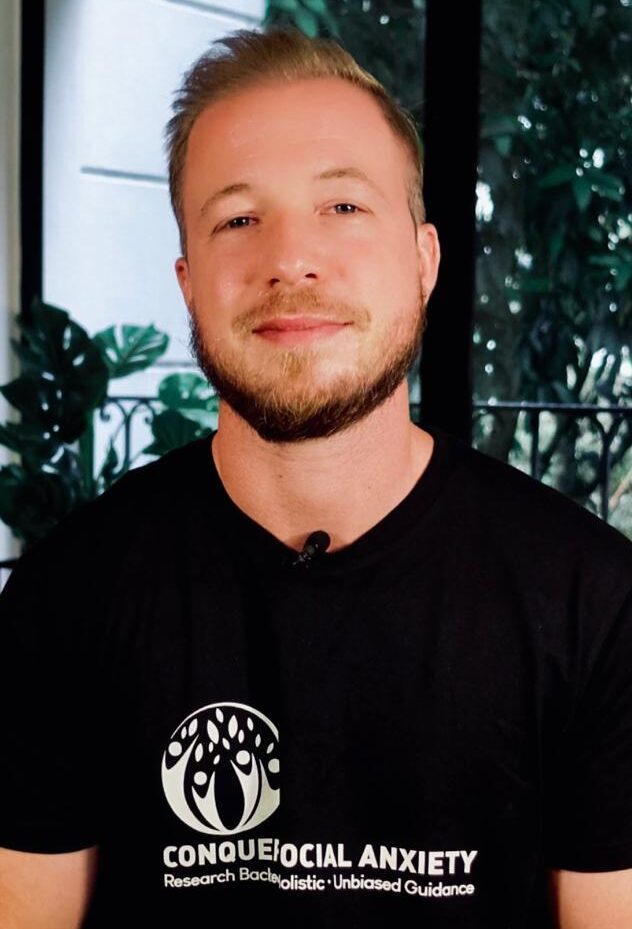
About the Author: Martin Stork
Martin is a professional psychologist with a background in physical therapy. He has organized and led various support groups for people with social anxiety in Washington, DC and Buenos Aires, Argentina. He is the founder of Conquer Social Anxiety Ltd, where he operates as a writer, therapist and director. You can click here to find out more about Martin.







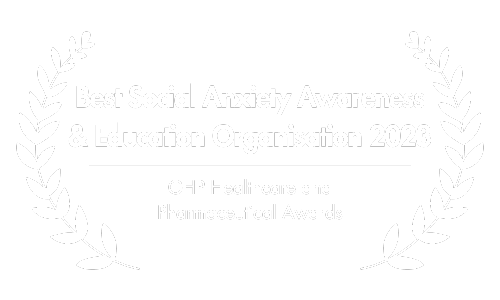

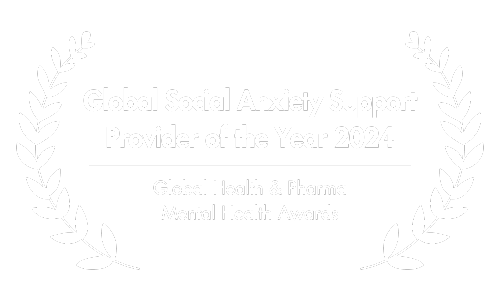


Social skills training is an absolute game-changer. I used to struggle with feeling awkward in social situations, but after attending a few workshops and courses, I’ve noticed a remarkable improvement in my confidence and ability to connect with others.
It’s great to hear about your success with social skills training! It really highlights the power of SST, particularly for those who feel unsure about how to act or behave in social situations.